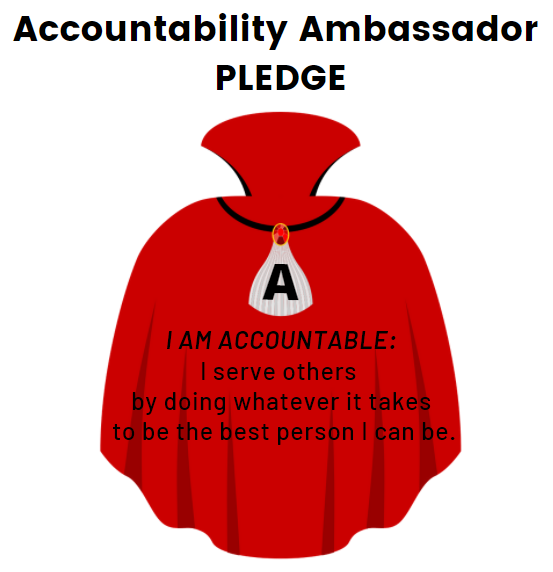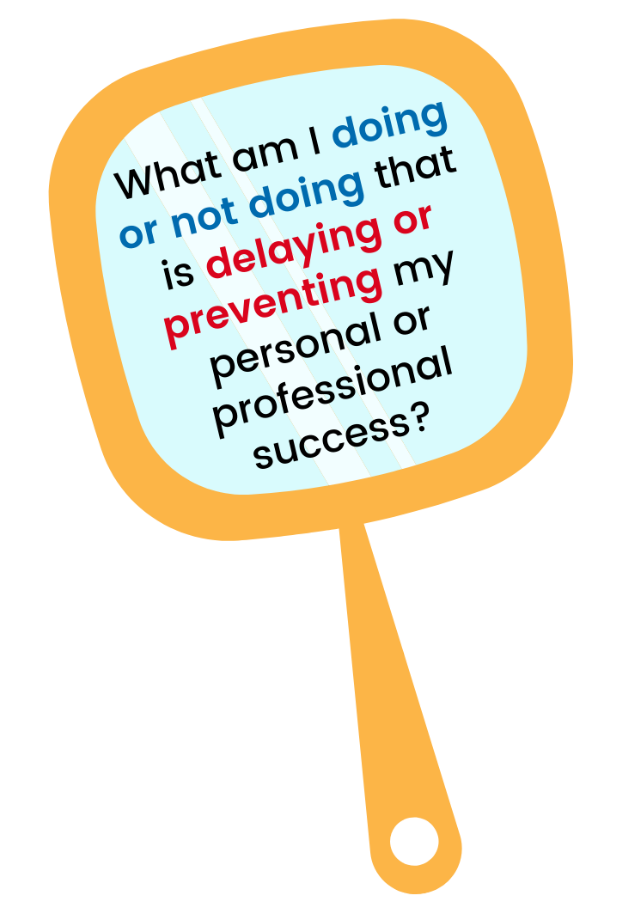If you were raised in a family like mine where loyalty was expected, you may struggle to fully embrace accountability. My father repeated these phrases often: “Blood is thicker than water” and “Charity begins at home”. Two possible translations I developed and internalized in my youth:
- Family comes first.
- You never side with outsiders over insiders.
I’m pretty good with the first one, provided that it isn’t taken to the extreme, excluding the needs of those outside the inner circle. Taking care of your family should be the #1 priority, in my opinion, but once they have the basic necessities, it’s time to look around for others who don’t. You won’t have to look far. Sharing our blessings and abundance doesn’t violate the loyalty value, and it is certainly aligned with accountability.
The second translation above is problematic for me, because my loyalty as Accountability Evangelist is to a standard, not to people. That standard is the Accountability Ambassador pledge.

So, if one of my daughters complains about something someone else did rather than take responsibility for her role in the situation, I bristle. If a friend chooses to do something that puts down another person, my empathy leans toward the other person. If someone I love tries to defend me against someone else’s actions, I’m often inclined to point out how I co-created what happened…at least that’s what I do when I’m being accountable.
How, then, do you demonstrate loyalty to your family and friends while upholding the Accountability Ambassador Pledge?
By hugging them accountable. By making sure they know you love them no matter what they do, even if their behavior appears to conflict with being accountable. By focusing first and only on changing your own behavior, keeping the mirror pointed in your direction:

The Personal Leadership Mirror is your greatest weapon in the war against finger pointing. Speak and teach with your actions. That’s what role models do. As you gently and compassionately ask yourself the question (“What am I doing or not doing that is delaying or preventing my personal or professional success?”) over and over, you’ll get more answers that will lead you to make the changes that will have the biggest and best impact on your life and the lives of those you choose to love and serve.
And if your call to service is strong, another great way to allow loyalty and accountability to peacefully coexist is to invite those to whom you are loyal to join you in service to others. That way, spending time lifting up others and/or supporting a charitable organization isn’t time/money away from those you love. Share why you choose to donate your time, talent, and treasure. When your loved ones understand your why, they will be more likely to endorse your participation, even if they decide not to participate themselves.
Be loyal to love. Loving others means you do whatever it takes to be the best person you can be. In that way, you don’t have to choose between being loyal and being accountable.
